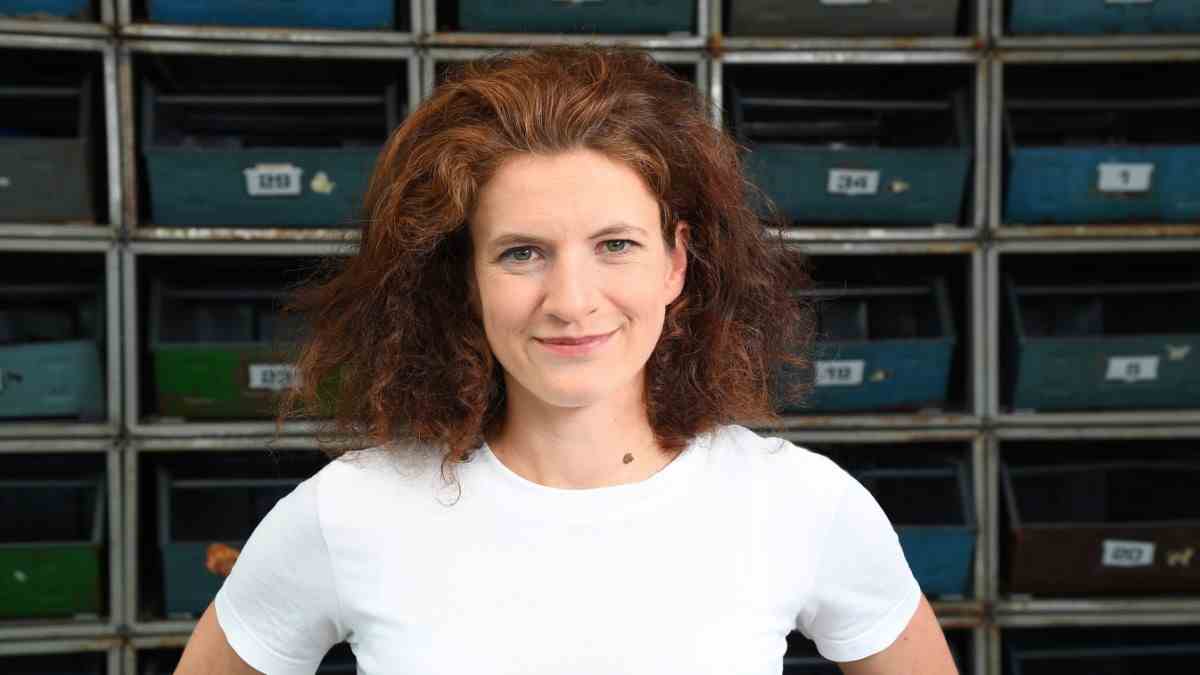“I don’t watch TV”. That is, really, the new advertising slogan for the ARD media library. In the campaign, television celebrities such as Carolin Kebekus, Daniel Donskoy or Jana Ina Zarrella what they prefer to stream there. The message is: the media library can do more than just provide you with missed programs. But is that true?
Nobody knows the answer better than Sophie Burkhardt. The 39-year-old has been responsible for the ARD media library since March and with the official title: Channel Manager. When the ARD program management was reorganized last year with editor-in-chief Oliver Köhr, program director Christine Strobl and her deputy Florian Hager, the additional task for Hager as channel manager was above all an internal signal: Look at what we are focusing on digitally!
Sophie Burkhardt has replaced Hager, who went to Hessischer Rundfunk as director – and now it’s her job to pimp the media library, also as a competitor to the oversized Netflix. But Sophie Burkhardt doesn’t want to work as channel-specifically as the job title suggests. She wants good content, on all channels: “Everything that’s in the media library is available for the television program,” she says. She was already at ZDF, in the main editorial office for digital media, and before that she had set up the public youth program Funk with Florian Hager. So she is familiar with format development, with the digital anyway.
“If the program even reaches a certain target group, I can count that as a success”
But how do you attract people to the ARD media library? With well-announced series like Babylon Berlin, which later also run on TV? With sports events like the Bundesliga? Or TV-known testimonials? If you click through the categories such as films, series or shows – the sports show is listed separately – you will find productions worth seeing such as cerv or the documentary about Kevin Kühnertunder the Movies heading, of course crime scene. You can now call it up during the day (it used to be only after 8 p.m.). The almost 1.9 million users who have registered so far – and who can also use the ZDF media library with the login – will find a wide range of offers, which, however, are still hidden behind far too many categories.
For Sophie Burkhardt, what seems confusing to users is precisely what makes the media library special. Unlike Netflix, they finally offer shows that are tailored to Germany, as well as regional offers and all the journalistic formats. Burkhardt says: “Netflix has no network of correspondents.” The realignment seems to be working: in the first three months of the year, the ARD media library recorded around 609 million hits, twelve percent more than in the last three months of last year.
“Babylon Berlin” is a sure-fire success on all channels (scene from with Liv Lisa Fries and Volker Bruch) – according to Sophie Burkhardt, the case is a little different for game shows.
(Photo: Frédéric Batier/dpa)
So if nine state broadcasters produce not only for television but also for digital, then the number of views and the length of time in the media center count at least as much as the ratings. “If the program only reaches a certain target group, which we otherwise have difficulties with, then I can count that as a success,” says Burkhardt. And the preferred target group is no longer just the young, but everyone under the age of 50.
The hardest thing about her job is keeping up the pace
Incidentally, this also helps television: One Documentary about the independent Russian channel doschd for example, it was called up so frequently in the media library that it ended up being shown on linear television – entirely according to Burkhardt’s conviction. “I’m not a purist who says I want the media center to work first and foremost,” she says. And then she adds: “Television is much more tolerant and open to new formats than we sometimes assume.”
In the end, isn’t it the case that – whether Babylon Berlin or investigative documentaries – good content always finds its way to the viewer, regardless of the channel? Channel manager or not? Burkhardt doesn’t quite see it that way. Game shows, for example, which people like to watch live, only worked in the media library after the broadcast. Also journalistic magazines like that morning magazine are struggling in the on-demand area. But that’s due to the narrative form, not the quality of the content, she says.
It’s easier with series: “Especially in fiction, you can tell things differently, span other dramatic arcs.” Because people would get more involved and watch a format to the end. But the most difficult thing is keeping up the speed, explains Burkhardt. There is an incredible dynamic in the industry, new content is constantly needed, but a house like ARD with a decentralized structure can react anything but quickly. All decisions are based on compromises.
This is probably also a reason why the ARD didn’t advance digitization earlier, why it didn’t modernize the media library sooner. A few weeks ago, program director Strobl announced that she wanted to present a new series in the media center every two weeks. A total of 25 new series are to be launched this year alone. These aren’t always the same as hits Babylon Berlinbut also the second season of the Dramedy Series All You Need or comedy production How To Dad about four overwhelmed fathers. Sophie Burkhardt doesn’t think that’s too ambitious: “If anyone can keep it up, it’s us.”

